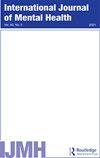Confirmatory factor analysis of the Intolerance of Uncertainty Scale (short form) in India
IF 1.7
Q3 PSYCHOLOGY, CLINICAL
引用次数: 4
Abstract
Abstract Intolerance of uncertainty, generally measured through the Intolerance of Uncertainty Scale - Short form (IUS-12), is a significant trans-diagnostic characteristic determining anxiety disorders and depression. Nevertheless, there are fewer studies on the factor structure of intolerance of uncertainty in non-western countries. In the present study, using confirmatory factor analysis, we studied the factor structure, measurement invariance, and psychometrics of the IUS-12 (Hindi version) on a sample of 862 college students (age: M = 21.42, SD = 3.1) in India. Results show that whereas the different models (i.e. the single-factor, the correlated two-factor, the truncated bi-factor, and the full bi-factor models) were a good fit with the data, the full bi-factor model was the best fitting model. The general factor was a stable and reliable construct that explained most of the variance and, thereby, showed the unidimensionality of the scale. In addition, there was strong measurement invariance in the IUS-12 across gender. Thus, the present study supports the reliability and validity of the IUS-12 and indicates cross-cultural validity of the intolerance of uncertainty. We have also discussed the implications of higher intolerance of uncertainty in India.印度不确定性不容忍量表(简称)的验证性因素分析
不确定性不耐受,通常通过不确定性不耐受量表简表(IUS-12)来测量,是确定焦虑症和抑郁症的重要跨诊断特征。然而,非西方国家对不确定性不耐受因素结构的研究较少。本研究采用验证性因子分析方法,对862名印度大学生(年龄:M = 21.42, SD = 3.1)的IUS-12(印地语版)量表的因子结构、测量不变性和心理测量学进行了研究。结果表明,单因素模型、相关双因素模型、截断双因素模型和全双因素模型均能较好地拟合数据,但全双因素模型是最佳拟合模型。一般因素是一个稳定可靠的结构,解释了大部分的方差,从而显示了量表的单维性。此外,在不同性别的IUS-12中存在很强的测量不变性。因此,本研究支持IUS-12的信度和效度,并表明不确定性不耐受的跨文化有效性。我们还讨论了印度对不确定性更不容忍的影响。
本文章由计算机程序翻译,如有差异,请以英文原文为准。
求助全文
约1分钟内获得全文
求助全文
来源期刊

INTERNATIONAL JOURNAL OF MENTAL HEALTH
PSYCHOLOGY, CLINICAL-
CiteScore
3.80
自引率
20.00%
发文量
32
期刊介绍:
The official journal of the World Association for Psychosocial Rehabilitation, the International Journal of Mental Health features in-depth articles on research, clinical practice, and the organization and delivery of mental health services around the world. Covering both developed and developing countries, it provides vital information on important new ideas and trends in community mental health, social psychiatry, psychiatric epidemiology, prevention, treatment, and psychosocial rehabilitation.
 求助内容:
求助内容: 应助结果提醒方式:
应助结果提醒方式:


